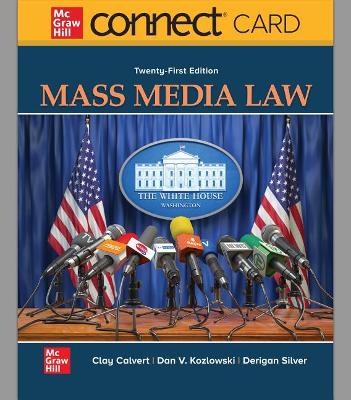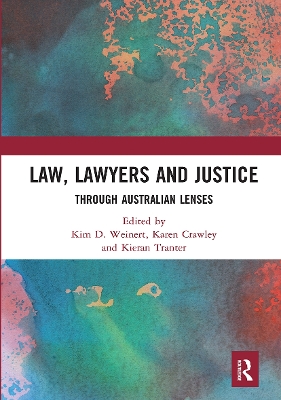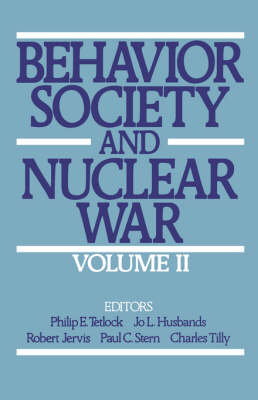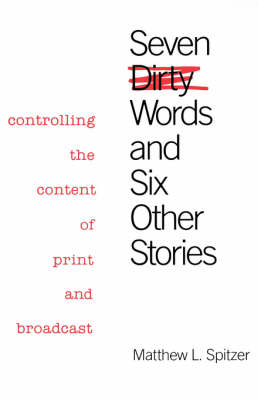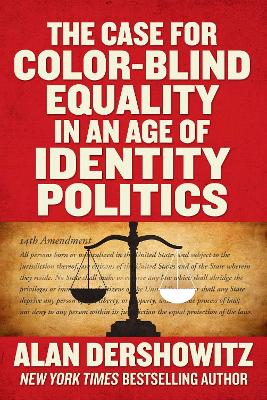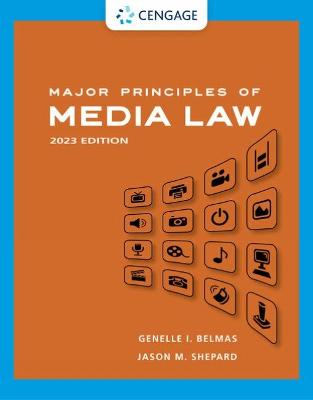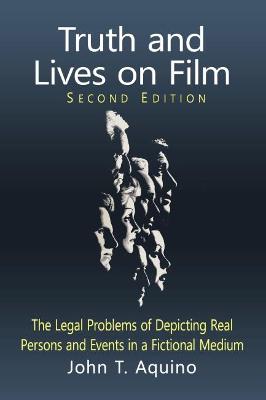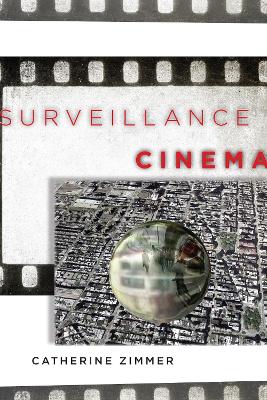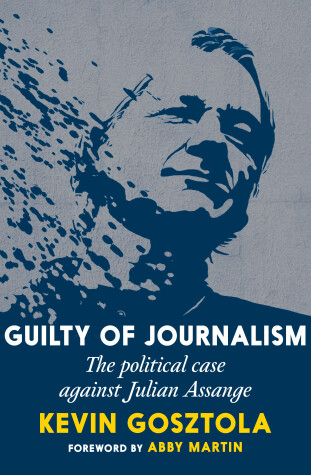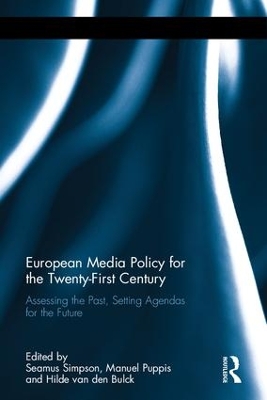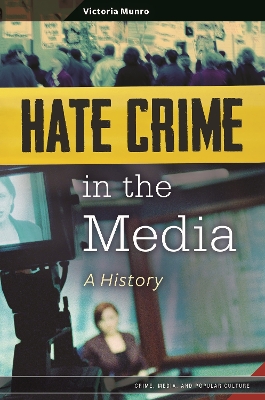Political Data Handbook (Comparative European Politics)
by Professor Jan-Erik Lane, David McKay, and Kenneth Newton
The purpose of this book is to provide a detailed statistical guide to the government and politics of the 24 OECD countries, together with social and economic background information. The aim is to present material of a factual nature in a form which meets the needs of professional politicians, administrators, journalists, teachers, political scientists and the interested citizen. The resulting compilation may be used for casual reference or for more systematic comparisons of 24 of the more advan...
Connect Access Card for Mass Media Law
by Don R Pember and Clay Calvert
Law, Lawyers and Justice
This book engages with the place of law and legality within Australia’s distinctive contribution to global televisual culture. Australian popular culture has created a lasting legacy – for good or bad – of representations of law, lawyers and justice ‘down under’. Within films and television of striking landscapes, peopled with heroes, antiheroes, survivors and jokers, there is a fixation on law, conflicts between legal orders, brutal violence and survival. Deeply compromised by the ongoing viol...
Ecological and Agrarian Regions of South Asia Circa 1930
by Daniel Thorner
This regional study, focusing on the South Asian subcontinent, brings together a range of information on natural conditions, irrigation works, environmental effects of landholding structures, and crop patterns in the first half of the 20th century. Full colour topographical and crop-maps for each of the 21 regions are included. This book is intended for students of ecology, environmental studies, and agriculture.
Sind Sachverhalte, die auf Grund ihrer Verortung im Internet einzig die Besonderheit einer digitalen oder virtuellen Natur aufweisen, im Ergebnis rechtlich anders zu beurteilen als vergleichbare Sachverhalte in der realen Welt? Und wenn ja, inwieweit? Die Arbeit konzentriert sich bei der Beantwortung dieser Fragen insbesondere auf sogenannte virtuelle Geschaftsmodelle. Zunachst wird beleuchtet, wie virtuelle Sachverhalte von der Rechtsordnung bisher erfasst werden und die Lucken aufgezeigt. Ansc...
Areopagitica (Coleccion Conmemorativa 70 Aniversario, #29)
by Professor John Milton
Advertising Law and Regulation
by Oliver Bray, Giles Crown, and Rupert Earle
Covers all aspects of the law as it affects advertising, from European legislation and copyright law to libel and obscenity laws. It clearly explains the laws, statutes and self-regulatory codes that govern advertising and there are sections given to the specific issues affecting television, radio and cinema.
In the last year the world has witnessed changes in East-West relations that would have been unthinkable only a short time ago. The Berlin Wall has crumbled, Eastern Europe has thrown out its authoritarian leaders, and the Soviet Union itself has undergone dramatic changes in political structure and foreign policy. The U.S. public no longer regards the Eastern Bloc as the principal threat to national security. Yet even with the undeniable thaw in the Cold War many of the old scenarios for "Wo...
Just a Journalist (The William E. Massey Sr. Lectures in American Studies)
by Linda Greenhouse
In this timely book, a Pulitzer Prize-winning reporter trains an autobiographical lens on a moment of remarkable transition in American journalism. Just a few years ago, the mainstream press was wrestling with whether labeling waterboarding as torture violated important norms of neutrality and objectivity. Now, major American newspapers regularly call the president of the United States a liar. Clearly, something has changed as the old rules of "balance" and "two sides to every story" have lost t...
Why does the United States control the content of broadcast more strictly than it controls the content of print? In this provocative book, Matthew L. Spitzer explores the various rationales that support such different treatment and concludes that broadcast media should not be as strictly regulated as it is. Spitzer attacks the three most prevalent arguments in favor of broadcast control, utilizing insights from economics and social psychology and relating them to basic questions of First...
The Case for Color-Blind Equality in an Age of Identity Politics
by Alan Dershowitz
In The Case for Color-Blind Equality in an Age of Identity Politics , Alan Dershowitz-New York Times bestselling author and one of America's most respected legal scholars-analyzes the current battles over issues of diversity and our rapidly changing ideas about what true diversity is. Alan Dershowitz has been called "one of the most prominent and consistent defenders of civil liberties in America" by Politico and "the nation's most peripatetic civil liberties lawyer and one of its most dist...
Major Principles of Media Law, 2023
Current through the most recent Supreme Court term, Belmas/Shepard's MAJOR PRINCIPLES OF MEDIA LAW, 2023, delivers a comprehensive summary of the latest additions, changes and developments in communication law. The text focuses on the issues most critical to media law. Helping you truly engage with the material, student-friendly features include essential questions that sharpen critical thinking skills and "Focus On" sidebars that explore key legal issues in depth. Giving you a personal connecti...
As early as the Silent Era, movie studios were sued over depictions of real people and events. Filmmakers have always altered the details of true stories and actual persons, living or dead, to make narratives more workable and characters more compelling. When truth and fantasy become inextricably mixed, the effect on people's lives can be significant, even devastating. In its expanded second edition, this examination of fact-based films and the law presents an updated history of legal issues sur...
In Paris, a static video camera keeps watch on a bourgeois home. In Portland, a webcam documents the torture and murder of kidnap victims. And in clandestine intelligence offices around the world, satellite technologies relentlessly pursue the targets of global conspiracies. Such plots represent only a fraction of the surveillance narratives that have become commonplace in recent cinema. Catherine Zimmer examines how technology and ideology have come together in cinematic form to play a funct...
A Century of Repression (History of Communication)
by Ralph Engelman and Carey Shenkman
From an acclaimed independent journalist, this carefully-documented analysis of the government’s case against Julian Assange and its implications for press freedom acts as a crucial, compelling guidebook to Assange’s upcoming trial. The legal action against Julian Assange is poised to culminate in a trial in the United States in 2023, and this book will help the public understand the proceedings. The establishment media's coverage of WikiLeaks founder Julian Assange's extradition case has focus...
European Media Policy for the Twenty-First Century (Routledge Advances in Internationalizing Media Studies)
Media policy issues sit at the heart of the structure and functioning of media systems in Europe and beyond. This book brings together the work of a range of leading media policy scholars to provide inroads to a better understanding of how effective media policies can be developed to ensure a healthy communication sector that contributes to the wellbeing of individual citizens, as well as a more democratic society. Faced with a general atmosphere of disillusionment in the European project, one o...
A history of U.S. public health emergencies and how we can turn the tide. Despite enormous advances in medical science and public health education over the last century, access to health care remains a dominant issue in American life. U.S. health care is often hailed as the best in the world, yet the public health emergencies of today often echo the public health emergencies of yesterday: consider the Great Influenza Pandemic of 1918-19 and COVID-19, the displacement of the Dust Bowl and the h...
How is hate engendered, and what causes hatred to manifest as criminal behavior? Hate Crime in the Media: A History considers how in America, perceived threats on national, physical, and/or personal space have been created by mediated understandings of different peoples, and describes how these understandings have then played out in hate crimes based on ethnicity, religious identity, or sexual identity. The work reveals the origins of hate in American culture found in the media; political rhetor...

